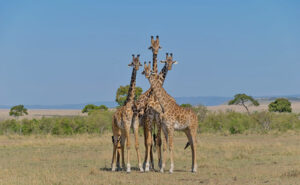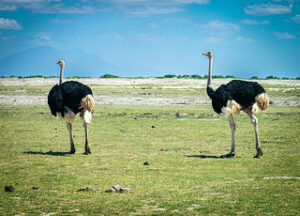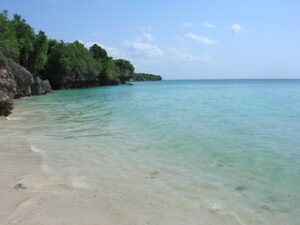Planning an African safari and beach vacation can be an exciting adventure, and timing your trip right is essential for the best experience. Africa offers diverse landscapes and climates, meaning the ideal time for a safari may not be the same as the best time for a beach visit. In this comprehensive guide, we’ll delve into the best times for safari and beach vacations across different regions in Africa, highlighting the unique experiences each season offers and tips for maximizing your enjoyment with vacation-safaris.
African Safari
East Africa: Kenya and Tanzania
Best Time for African safari: June to October
East Africa, particularly Kenya and Tanzania, is famed for its spectacular safaris. The period from June to October is the dry season, which is considered the best time for a safari. During these months, the weather is pleasant with less rainfall, making wildlife easier to spot as animals gather around water sources.
The Great Migration on African safari
This is one of nature’s most incredible spectacles, where millions of wildebeest, zebras, and gazelles migrate across the Serengeti and Maasai Mara. The peak of the migration usually occurs from July to September when the herds cross the Mara River, a dramatic event involving predator-prey interactions.
Optimal Game Viewing
With sparse vegetation and limited water sources, wildlife is more concentrated and visible. Predators such as lions, cheetahs, and leopards are more easily spotted during this time.
Shoulder Seasons for an African safari: January to March and November to December
The shoulder seasons also offer good safari opportunities. January to March is the calving season in the Serengeti, where thousands of newborn wildebeests make for exciting predator-prey dynamics. November to December, though part of the short rainy season, can still provide excellent wildlife viewing with fewer tourists.
Southern Africa: South Africa, Botswana, Zimbabwe, and Namibia
Best Time: May to October
Southern Africa’s best safari experiences are typically during the dry winter months from May to October. The weather is cooler, and the lack of water causes animals to congregate around rivers and waterholes.
Kruger National Park (South Africa)
One of Africa’s largest game reserves, Kruger offers excellent wildlife viewing, particularly in the dry season. The vegetation is thinner, making it easier to see animals.
Okavango Delta (Botswana) – African safari
The Okavango Delta floods during the dry season, attracting a plethora of wildlife. Game drives and boat safaris during this time are exceptional.
Victoria Falls (Zimbabwe/Zambia)
While Victoria Falls is a year-round destination, visiting during the dry season allows for better views of the gorge and more adventurous activities like white-water rafting.
Shoulder Seasons: April and November
The shoulder months of April and November offer a balance between good wildlife viewing and fewer tourists. The landscapes are lush, and while there may be some rain, it usually doesn’t hamper safari activities significantly.
Beach Vacations in Africa
East Africa: Kenya and Tanzania
Best Time for an African safari: December to March
The coastal regions of Kenya and Tanzania, including Zanzibar, have a tropical climate with warm temperatures year-round. The best time for a beach vacation here is during the dry season from December to March.
Zanzibar
Known for its stunning white-sand beaches and clear turquoise waters, Zanzibar is perfect for relaxing, snorkeling, and diving during these months. The sea is calm, and the weather is ideal for beach activities.
Mombasa and Diani Beach (Kenya)
These coastal areas offer beautiful beaches, vibrant marine life, and numerous water sports. The dry season ensures sunny days and pleasant sea conditions.
Shoulder Seasons for an African safari: July to October
The other good period for beach vacations in East Africa is the long dry season from July to October. While not as hot as December to March, the weather is still excellent for beach activities, and there is less humidity.
Southern Africa: Mozambique, South Africa
Best Time for an African Safari: May to October
Mozambique and South Africa offer stunning beach destinations along the Indian Ocean. The best time to visit these beaches is during the dry winter months from May to October.
Mozambique
The Bazaruto Archipelago and Quirimbas Archipelago are renowned for their pristine beaches, vibrant coral reefs, and excellent diving opportunities. The dry season ensures clear waters and pleasant weather.
KwaZulu-Natal (South Africa)
The beaches along the KwaZulu-Natal coast, including Durban and the Wild Coast, are best visited during the winter months when the weather is warm, and the sea conditions are ideal for swimming and surfing.
Shoulder Seasons for an African safari: April and November
These months can also be pleasant for beach vacations in Southern Africa, with fewer tourists and mild weather. The water might be slightly cooler, but still enjoyable for most activities.
Combining African Safari and Beach
Best Combined Itinerary: June to October
To combine both safari and beach experiences, the period from June to October is generally the best time. Here’s a suggested itinerary:
Start with an African Safari in East Africa
Begin your adventure with a safari in Kenya or Tanzania. Witness the Great Migration in the Serengeti or Maasai Mara and enjoy game drives in the Ngorongoro Crater.
Relax on Zanzibar’s Beaches
After your safari, head to Zanzibar for a relaxing beach holiday. The island’s stunning beaches and rich cultural heritage provide a perfect end to your African adventure.
Alternative Combined Itinerary: December to March
Another excellent period for combining safari and beach is from December to March:
Begin your African Safari in Southern Africa
Start your trip with a safari in Kruger National Park or the Okavango Delta. The weather is warm, and wildlife viewing is still good, though not as optimal as the dry season.
End African safari with a Beach Holiday in Mozambique
Fly to Mozambique for a beach holiday. The Bazaruto and Quirimbas Archipelagos offer idyllic beaches, clear waters, and excellent marine life during this time.
Practical Tips for Planning Your Trip
Booking and Logistics
Book in Advance
Popular safari lodges and beach resorts can fill up quickly, especially during peak seasons. Booking several months in advance ensures you get your preferred accommodations.
Travel Insurance
Consider comprehensive travel insurance that covers safari activities, medical emergencies, and trip cancellations.
Health Precautions
Check vaccination requirements and take anti-malarial medication if recommended for the regions you’re visiting.
Packing Essentials
Safari Gear
Lightweight, neutral-colored clothing, a wide-brimmed hat, binoculars, and a good camera are essential for a safari. Layers are important as temperatures can vary significantly.
Beach Essentials
Pack swimwear, sunscreen, insect repellent, and light, comfortable clothing for your beach stay. A snorkeling mask can enhance your underwater exploration.
Cultural Considerations for an African safari
Respect Local Customs
Be mindful of local customs and dress codes, particularly in more conservative areas.
Engage with Locals
Take time to learn about and engage with the local communities. Responsible tourism can enrich your experience and benefit local economies.
Conclusion
Africa offers unparalleled safari and beach experiences, with the best times varying depending on the region. For East Africa, the prime safari season is from June to October, while beach vacations are best from December to March. In Southern Africa, the dry winter months from May to October provide the best conditions for both safaris and beach holidays. By carefully planning your trip with Active African Vacations, you can ensure a seamless and unforgettable journey. Whether witnessing the Great Migration, exploring the Okavango Delta, or relaxing on Zanzibar’s pristine beaches, Africa’s diverse landscapes and rich wildlife promise an adventure of a lifetime.





